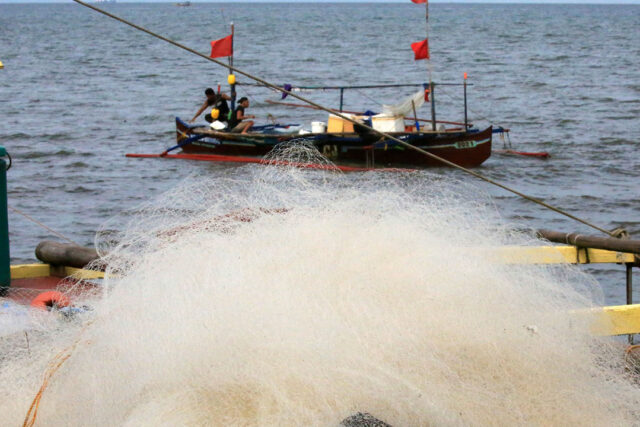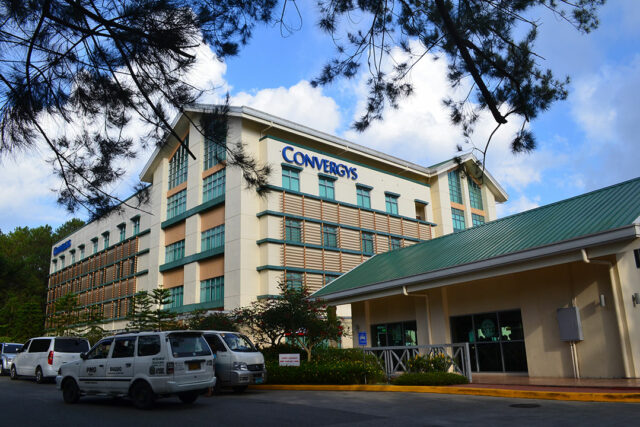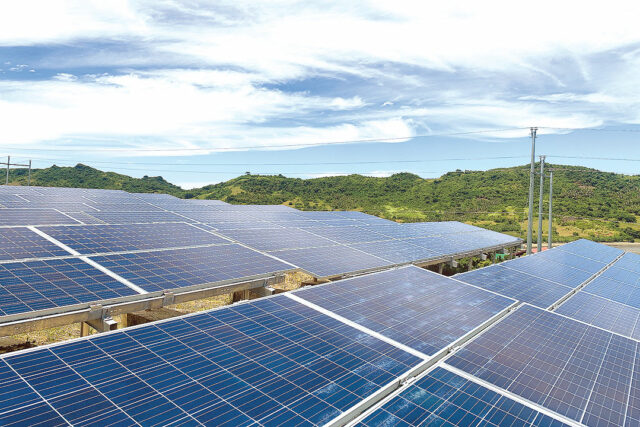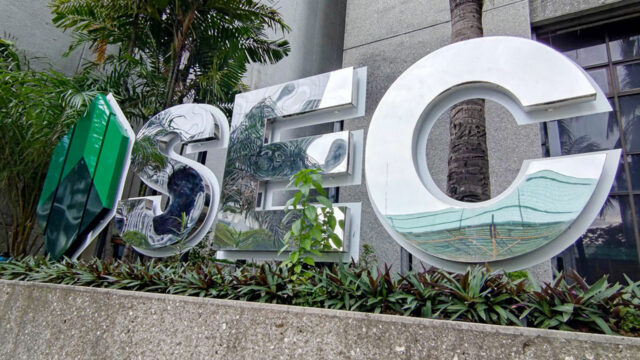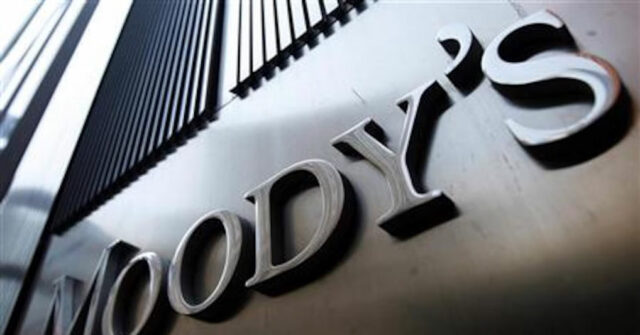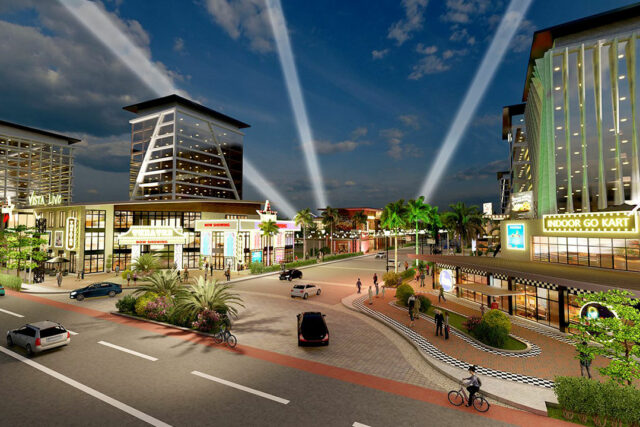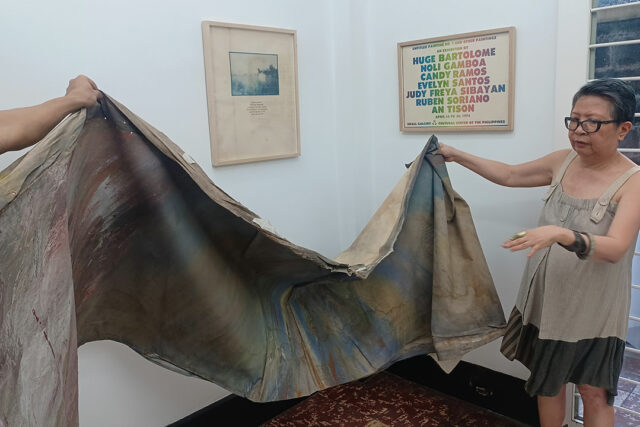MOODY’S RATINGS on Monday affirmed the long- and short-term deposit ratings of the Philippines’ three biggest private banks in asset terms, putting them at par with its assessment of the sovereign.
The debt watcher kept the Baa2/P-2 long-term (LT) and short-term (ST) foreign currency (FC) and local currency (LC) deposit ratings of Bank of the Philippine Islands (BPI), BDO Unibank, Inc., and Metropolitan Bank & Trust Co. (Metrobank) with “stable” outlooks, citing their steady profitability.
It also affirmed these banks’ Baa1/P-2 LT and ST FC and LC counterparty risk ratings, their Baa1(cr)/P-2(cr) LT and ST counterparty risk assessments, as well as their baa2 baseline credit assessment (BCA) and baa2 adjusted BCA.
BDO, Metrobank, and BPI were the three largest private banks as of end-March with assets of P4.9 trillion, P3.475 trillion, and P3.3 trillion, respectively.
Moody’s said an upgrade in the three banks’ deposit ratings and BCA are unlikely in the near term unless there is an upgrade in the Philippines’ Baa2 sovereign credit rating.
BDO
Moody’s also kept the BDO’s FC senior unsecured medium-term note program rating at (P)Baa2, its FC senior unsecured rating at Baa2, and its FC other short-term rating at (P)P-2, it said in a statement. “We have also affirmed BDO Unibank, Inc., Hong Kong Branch’s FC senior unsecured medium-term note (MTN) program rating at (P)Baa2 and its FC other short-term rating at (P)P-2.”
“The affirmation of BDO’s BCA and ratings reflects the bank’s stable asset quality and strong credit underwriting despite its high consumer loan growth over the past three years. At the same time, the affirmation reflects the bank’s robust funding and liquidity, good profitability and adequate capital,” Moody’s said.
BDO’s asset quality has remained stable, with its nonperforming loan (NPL) coverage also strong, even as amid robust consumer loan growth and its large exposure to big Philippine companies, the debt watcher said.
Moody’s expects the bank’s NPL ratio to remain low this year as risks from unseasoned loans are expected to be mitigated by BDO’s strong underwriting and its strategy of growing its consumer loans via its current depositor base.
It also sees BDO’s profitability to be “broadly stable,” with its return on assets (RoA) expected to be at 1.6%-1.7% this year from 1.77% in 2024, as the expected compression in its net interest margin (NIM) due to the central bank’s policy easing likely to be partly offset by strong loan growth amid ample liquidity in the financial system and the expansion of higher-yielding consumer credit.
“At the same time, we expect the bank’s credit costs to remain low, at around the current level of 40 bps (basis points), and its growth in non-interest income to continue, which will support the bank’s overall profitability,” Moody’s said.
“We expect the bank’s capital ratio to remain largely stable at around the 14%-15% range in 2025 as its internal capital generation will be sufficient to keep up with its loan growth,” it added. “Meanwhile, we expect the bank’s funding and liquidity to remain its key strengths, with a robust and growing dominant franchise supporting its deposit market share, which was the highest among its domestic rated-peers as of end-2024. Its reliance on market funds remains low at 6% of its tangible banking assets and its liquidity remains strong, with a liquidity coverage ratio of 132% as of end-2024.”
Moody’s said it could lower the bank’s BCA if its capital position deteriorates and its asset quality worsens, as this could drive up credit costs, which would consequently affect profitability.
METROBANK
On Monday, Moody’s also affirmed Metrobank’s Baa2 FC senior unsecured rating and its (P)Baa2 LC and FC senior unsecured MTN program ratings.
“The affirmation of Metrobank’s Baa2 ratings and baa2 BCA reflects the bank’s strong solvency, balanced against weakened funding and liquidity metrics. While we assume Metrobank will receive support from the Government of Philippines (Baa2 stable) in times of need, the bank ratings do not benefit from government support uplift because its BCA is already at the same level as the sovereign rating,” it said.
The bank’s strong solvency metrics are supported by its robust asset quality and stable profitability, Moody’s said, adding that Metrobank’s NPL ratio was steady at 1.6% at end-March even as it saw more problem loans in the retail segment.
“While the asset quality of retail loans will remain weaker than non-retail loans, we expect the NPL ratio of the bank to remain broadly stable, as non-retail loans continue to account for a sizable proportion of the loan book and will remain the key driver of asset quality over the next 12 to 18 months. Metrobank has also maintained a strong loan loss buffer, with reported loan loss reserves as a percentage of problem loans at 151% as of March 2025.”
The bank’s RoA was also stable at 1.4% at end-March, it noted. “While we expect profitability to decline modestly over the next 12 to 18 months due to slower loan growth and rate cuts, we estimate RoA to stay above 1% during this period.”
Meanwhile, Moody’s said that while Metrobank’s capitalization has declined in recent years, it is likely to stay stable in the near term.
“Metrobank’s funding structure deteriorated over the past 12 to 18 months. As of March 2025, market funds as a percentage of tangible banking assets increased to 21% from 10% a year earlier, as the bank used cheaper funding to support its growth. We expect the reliance on market funds to remain broadly stable at the current level,” it said.
“While loan growth will moderate in 2025, we expect the bank to maintain its net interest margin by funding its growth with cheaper sources of funds. Meanwhile, the bank continues to maintain a strong liquidity buffer, with a liquidity coverage ratio at 184% as of March 2025. While it has declined from 276% a year earlier, it remains higher than some of its rated peers in Philippines.”
The debt watcher added that a downgrade in Metrobank’s BCA is possible if its reliance on market funds increases further or its liquid banking assets decline materially.
BPI
Moody’s on Monday said it also affirmed the Baa2 FC senior unsecured rating and (P)Baa2 FC senior unsecured MTN program rating of BPI.
“The affirmation of BPI’s Baa2 long-term deposit ratings, senior unsecured ratings, and baa2 baseline credit assessment reflects the bank’s adequate capital, healthy liquidity, and good profitability. These credit strengths are balanced against BPI’s deteriorating asset quality, driven by its rapid loan growth into the higher risk consumer segments,” the credit rater said.
It noted that BPI’s NPL ratio rose to 2.1% in 2024 from 1.8% a year prior due to higher problem loans in unsecured lending segments such as credit cards, personal loans and microfinance.
“Its reported NPL ratio has further increased to 2.3% as of March 2025. The bank’s problem loan coverage level has also declined to 77% from 99% over the same period due to higher write-offs on its retail book. We expect further weakening in the bank’s asset quality as its loans season, and as a consequence of its target of double-digit growth in higher risk segments such as its credit cards, personal and business bank (small- and medium sized-enterprises) loans. This would likely see BPI go down the credit curve as it seeks to increase financial inclusion,” Moody’s said.
For profitability, BPI’s RoA could weaken to about 1.6%-1.7% this year from 1.91% in 2024 “as modest NIM expansion from a larger share of higher yielding retail loans will be offset by higher credit costs as the bank grows its unsecured retail portfolio and rebuilds its loan loss buffers,” it said.
Meanwhile, Moody’s expects the bank’s capital to remain stable even amid faster loan growth. It said BPI’s funding and liquidity will likely stay “robust” as the bank has large liquid banking assets and low reliance on market funds.
“We expect the bank’s funding and liquidity metrics to remain strong despite some deterioration as the bank accelerates growth,” it said.
The debt watcher said it could downgrade the BPI’s BCA if there is a significant deterioration in the bank’s solvency metrics. — BVR

